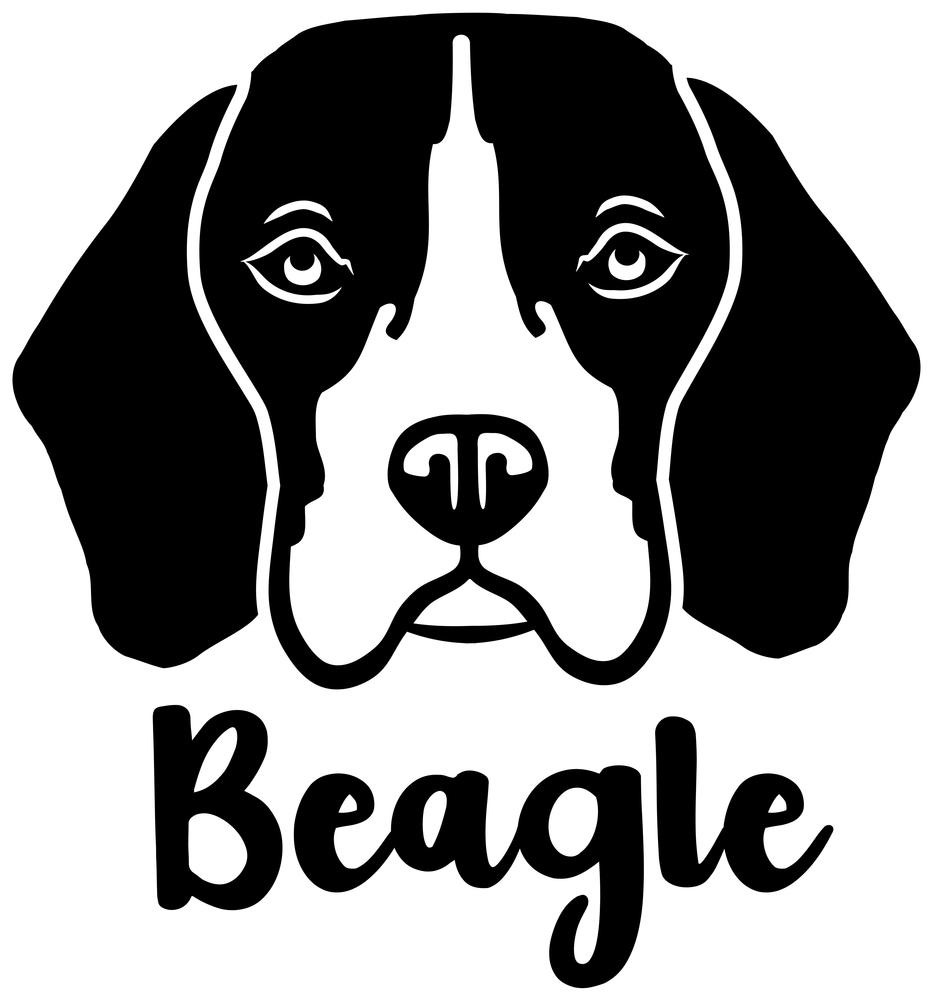
Introduction to Beagle Diet Plan
Beagles are known for their friendly and gentle nature, making them a popular choice for family pets. However, like any other breed, they have specific dietary needs that must be met to ensure their health and longevity. This article aims to provide a comprehensive guide to a balanced diet plan for Beagles.
- Understanding the Importance of a Balanced Diet for Beagles
- Common Misconceptions about Beagle Dietary Needs
A balanced diet is crucial for a Beagle’s overall health. It helps maintain their weight, supports their immune system, and promotes a shiny, healthy coat. A balanced diet for a Beagle should include proteins, carbohydrates, fats, vitamins, and minerals in the right proportions.
Proteins are essential for muscle development and repair, while carbohydrates provide the energy they need for their active lifestyle. Fats are necessary for brain development, especially in puppies, and they also help keep the skin and coat healthy. Vitamins and minerals are vital for various body functions and disease prevention.
There are several misconceptions about the dietary needs of Beagles. One common myth is that Beagles can eat the same food as humans. While they can enjoy certain fruits and vegetables, many human foods are harmful to them. For instance, foods like chocolate, onions, and grapes can be toxic to Beagles.
Another misconception is that Beagles need a lot of food because of their high energy levels. While it’s true that Beagles are active dogs, overfeeding can lead to obesity, which can cause various health problems. It’s important to feed them the right amount of food based on their age, weight, and activity level.
In conclusion, understanding the dietary needs of your Beagle and providing a balanced diet is essential for their health and well-being. Avoid falling for common misconceptions and always consult with your vet if you have any doubts about your Beagle’s diet.
Understanding Beagle Dietary Needs
Beagles, like all dogs, have specific dietary needs that must be met for them to thrive. Understanding these needs is crucial for any Beagle owner. Let’s delve into the essential nutrients for Beagles and their unique dietary requirements.
Beagle Nutrition Guide
- Essential Nutrients for Beagles
Beagles require a balanced diet that includes a variety of nutrients. These include:
- Proteins: Proteins are the building blocks of your Beagle’s body. They are essential for growth, tissue repair, and immune function. Sources of protein can include chicken, beef, fish, and eggs.
- Fats: Fats provide the most concentrated source of energy for your Beagle. They also help keep their skin and coat healthy. Good sources of fats include fish oil and flaxseed.
- Carbohydrates: Carbohydrates provide energy and help with digestion. They should come from high-quality sources like sweet potatoes and brown rice.
- Vitamins and Minerals: These are necessary for various bodily functions, including bone health and immune function. They can be found in fruits, vegetables, and certain dog foods.
- Understanding Beagle’s Unique Dietary Needs
Beagles have a few unique dietary needs that set them apart from other breeds. First, they are prone to obesity, so their calorie intake should be carefully monitored. Second, they are known for their fast eating, which can lead to digestive problems. Slow feeder bowls can help with this issue. Lastly, Beagles are known to have food allergies, so it’s important to monitor your dog for any adverse reactions to new foods.
In conclusion, understanding your Beagle’s dietary needs is a crucial part of ensuring their health and happiness. By providing a balanced diet that includes all the essential nutrients and taking into account their unique needs, you can help your Beagle live a long, healthy life.
Beagle-Friendly Food
Feeding your Beagle a balanced and nutritious diet is crucial for their overall health and well-being. Let’s explore some of the best food options for Beagles and the pros and cons of homemade food for these energetic and playful dogs.
- Best food options for Beagles
- Dry Kibble: High-quality dry kibble is a convenient and nutritious option for Beagles. Look for brands that list real meat (like chicken, beef, or fish) as the first ingredient and avoid those with fillers like corn and wheat.
- Canned Food: Canned food is another good option, especially for Beagles who prefer wet food. It’s often more flavorful and appetizing than dry kibble, but it can be more expensive.
- Raw Diet: Some Beagle owners swear by a raw diet, which can include raw meat, bones, fruits, and vegetables. However, this diet requires careful planning to ensure it’s balanced and safe.
- Homemade food for Beagles: Pros and Cons
Beagles, like all dogs, require a balanced diet that includes proteins, carbohydrates, fats, vitamins, and minerals. Here are some of the best food options for Beagles:
Preparing homemade food for your Beagle can be a rewarding experience, but it’s important to understand the pros and cons before you start.
| Pros | Cons |
|---|---|
| You control the ingredients and can avoid fillers and additives. | It can be time-consuming to prepare. |
| You can cater to your Beagle’s specific dietary needs and preferences. | It can be challenging to ensure the diet is balanced and nutritious. |
| Homemade food can be more appetizing for your Beagle. | It can be more expensive than commercial dog food. |
Whether you choose commercial or homemade food, remember to consult with your vet to ensure your Beagle’s dietary needs are being met.
Creating a Healthy Diet for Beagles
Designing a balanced and nutritious diet for your Beagle is crucial for their health and well-being. This section will guide you through the essential components of a Beagle’s diet, including proteins, carbohydrates, fats, vitamins, and minerals.
Building a Balanced Diet for Beagles
Creating a balanced diet for your Beagle involves understanding their nutritional needs and providing the right balance of proteins, carbohydrates, fats, vitamins, and minerals. Here are the key elements to consider:
- Protein sources for Beagles
- Carbohydrates and fats in Beagle’s diet
- Vitamins and minerals for Beagles
Protein is a vital part of a Beagle’s diet. It helps build strong muscles and supports their immune system. Good sources of protein for Beagles include chicken, beef, fish, and eggs. It’s recommended that adult Beagles get about 18-25% of their daily calories from protein.
Carbohydrates provide energy for your Beagle, while fats help absorb vitamins and protect their organs. Healthy sources of carbohydrates include sweet potatoes, brown rice, and oats. Fats should come from quality sources like fish oil or flaxseed. Aim for about 50-60% carbohydrates and 10-15% fats in your Beagle’s diet.
Vitamins and minerals are essential for your Beagle’s overall health. They support bone health, aid digestion, and boost the immune system. Include a variety of fruits and vegetables in your Beagle’s diet to provide these nutrients. Some Beagles may also benefit from a multivitamin supplement, but always consult your vet before starting any new supplements.
Remember, every Beagle is unique, and their dietary needs may vary based on their age, weight, activity level, and health status. Always consult with your vet to create a diet plan that’s tailored to your Beagle’s specific needs.
Sample Beagle Diet Plan
Creating a healthy diet plan for your Beagle is essential for their overall health and wellbeing. Here, we provide an example of a daily meal plan and tips on how to adjust the diet according to your Beagle’s age and health condition.
-
Example of a Daily Meal Plan for Beagles
Let’s start with a sample daily meal plan for a healthy adult Beagle:
Meal Food Breakfast 1 cup of high-quality dry dog food mixed with 1/4 cup of canned food Lunch 1/2 cup of dry food and a small portion of cooked chicken or turkey Dinner 1 cup of dry food, 1/4 cup of canned food, and a few pieces of cooked vegetables Remember, this is just a sample. The exact portions may vary depending on your Beagle’s weight, activity level, and overall health.
-
Adjusting the Diet Plan According to Beagle’s Age and Health Condition
Beagles, like all dogs, have different dietary needs at different stages of their lives. Puppies need more protein and fat for growth, while older dogs may need fewer calories to prevent weight gain. Here are some tips:
- Puppies (up to 1 year): Feed them 3-4 times a day with high-quality puppy food.
- Adults (1-7 years): Feed them twice a day. You can follow the sample meal plan above.
- Seniors (8 years and above): They may need fewer calories. Consult your vet for a suitable diet plan.
If your Beagle has a health condition like obesity or allergies, you may need to adjust their diet accordingly. Always consult your vet before making significant changes to your Beagle’s diet.
Addressing Beagle Food Allergies
Just like humans, our beloved Beagles can also suffer from food allergies. It’s important to know how to identify and manage these allergies to keep your furry friend healthy and happy. In this section, we will delve into the common food allergies in Beagles and provide guidance on how to identify and manage them.
- Common food allergies in Beagles
Beagles, like other dog breeds, can be allergic to certain types of food. The most common food allergens for Beagles include:
- Wheat
- Dairy
- Chicken
- Beef
- Soy
These ingredients are often found in commercial dog foods, which is why it’s crucial to read the labels carefully. If your Beagle is allergic to any of these, they may experience symptoms like itching, skin rashes, vomiting, and diarrhea.
- How to identify and manage food allergies
Identifying a food allergy in your Beagle can be tricky, but there are signs to look out for. These include:
- Excessive scratching
- Red, inflamed skin
- Chronic ear infections
- Gastrointestinal issues like diarrhea and vomiting
If you notice any of these symptoms, it’s best to consult with your vet. They may recommend an elimination diet, where you slowly remove potential allergens from your Beagle’s diet and observe for any changes in their symptoms.
Managing food allergies involves avoiding the allergen altogether. This may mean switching to a hypoallergenic diet or preparing homemade meals for your Beagle under the guidance of your vet.
Remember, every Beagle is unique and what works for one may not work for another. It’s always best to seek professional advice when dealing with food allergies.
Conclusion: Best Food for Beagles
In this guide, we have explored the dietary needs of Beagles, how to create a healthy diet plan for them, and how to address food allergies. Now, let’s wrap up with some key takeaways and final thoughts on creating a tail-wagging diet plan for your Beagle.
- Key takeaways on Beagle nutrition:
- Final thoughts on creating a tail-wagging diet plan for your Beagle:
Beagles require a balanced diet that includes proteins, carbohydrates, fats, vitamins, and minerals. Proteins should make up about 18% of an adult Beagle’s diet and 22% of a puppy’s diet. Carbohydrates provide energy, while fats help in vitamin absorption and skin health. Vitamins and minerals are essential for overall health and wellbeing. Always ensure the food you choose is free from artificial additives and preservatives.
Creating a diet plan for your Beagle is not just about feeding them the right food, but also about feeding them in the right way. Beagles are prone to obesity, so portion control is crucial. Regular exercise is also important to keep your Beagle healthy and fit. Remember, a healthy Beagle is a happy Beagle!
In conclusion, the best food for Beagles is one that meets their unique nutritional needs and is free from harmful additives. By following the guidelines provided in this guide, you can ensure your Beagle enjoys a long, healthy, and tail-wagging life. Bon appétit!





